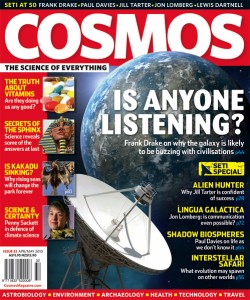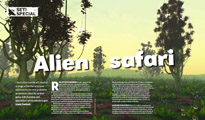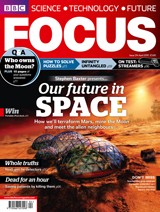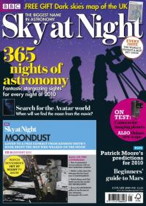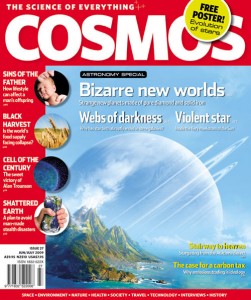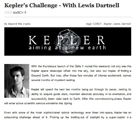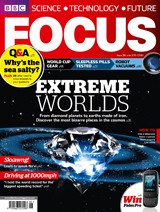 Planets with shells of diamond, others completely covered with water – the latest computer models predict some pretty strange worlds are lurking out there. And we could be on the verge of spotting them thanks to the latest planet hunting technology…
Planets with shells of diamond, others completely covered with water – the latest computer models predict some pretty strange worlds are lurking out there. And we could be on the verge of spotting them thanks to the latest planet hunting technology…
Author: lewis
Alien Safari
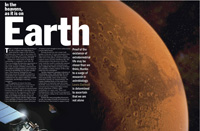 Proof of the existence of extraterrestrial life may be closer than we think, thanks to a surge of research in astrobiology. Lewis Dartnell is determined to ascertain that we are not alone
Proof of the existence of extraterrestrial life may be closer than we think, thanks to a surge of research in astrobiology. Lewis Dartnell is determined to ascertain that we are not alone
Read full story on THE website
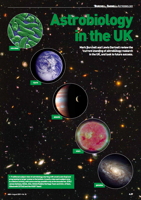 Mark Burchell and Lewis Dartnell review the current standing of astrobiology research in the UK, and look to future success.
Mark Burchell and Lewis Dartnell review the current standing of astrobiology research in the UK, and look to future success.
Download pdf
Also available at Astronomy and Geophysics
Weird Worlds
The first world beyond our solar system was discovered in 1992, and since then astronomers have been finding such ‘extrasolar planets’ (also abbreviated to ‘exoplanets’) at an ever quickening rate. As techniques and telescopes increase in sensitivity, the race is on to be the first to announce the discovery of a truly terrestrial exoplanet – a Second Earth.
